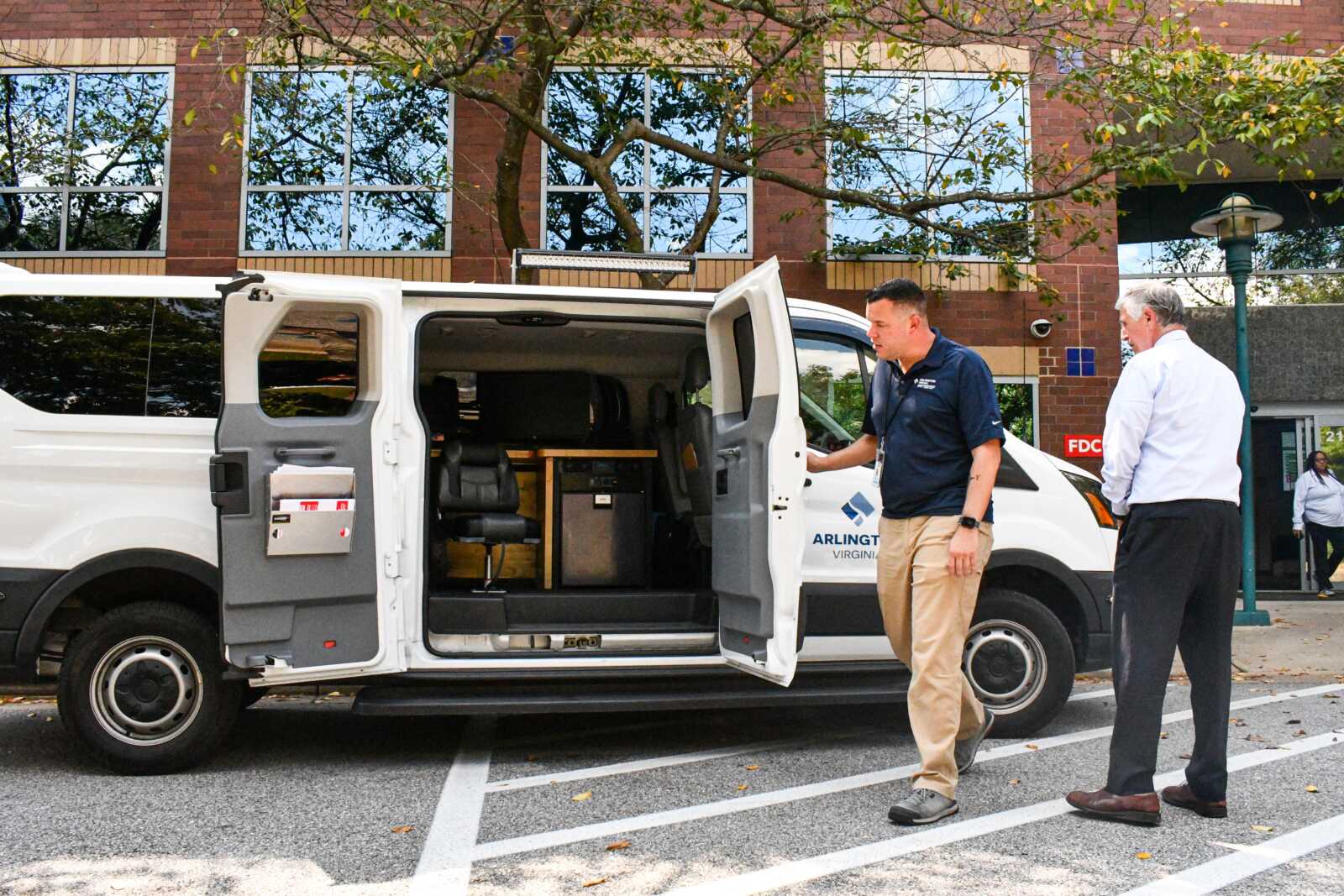Editor’s Note: Healthy Paws is a column sponsored and written by the owners of Clarendon Animal Care, a full-service, general practice veterinary clinic and winner of a 2017 Arlington Chamber of Commerce Best Business Award. The clinic is located 3000 10th Street N., Suite B. and can be reached at 703-997-9776.
Cats are often forgotten members of the household in terms of veterinary care, since they are by nature self-reliant and hide illness and discomfort remarkably well. According to the American Association of Feline Practitioners (AAFP), a “senior” cat is defined as a cat over 11 years of age, while a “geriatric” cat is defined as being over 15 years of age.
As age increases, cats are more prone to developing subtle changes in behavior that can help clue us into various common diseases in older kitties, such as arthritis, chronic kidney disease, hyperthyroidism, hypertension (high blood pressure) and small intestinal disease.
Chronic pain caused by osteoarthritis (degenerative joint disease) is the most common condition we diagnose that causes a chronic, negative impact on quality of life. Studies have shown that up to 90% of older cats will have changes consistent with osteoarthritis on x-rays, affecting many different joints in the spine and limbs.
Recognition of feline pain and pain management in cats has come a very long way in the last two decades. Some cats will develop visible lameness or signs of discomfort, but often the signs are much more subtle, such as:
- Hesitation before jumping.
- Relocating favored perches and sleeping areas to more accessible areas.
- If in a home with stairs, limiting themselves to one level of the home.
- Under grooming or over grooming.
- Not using the litterbox, especially to defecate.
- Reclusiveness and/or changes in temperament.
Treatment of osteoarthritis is often multimodal, meaning approached from many different angles. We generally start with omega-3 and joint supplements, as well as some prescription foods to manage the disease from a nutritional angle. Weight management is also an important part of nutritional management, as obesity creates a pro-inflammatory state in the body that can worsen disease symptoms (this is true of humans and dogs, as well!). Pain management with various drug therapies are often recommended; as well as physical therapy, cold laser therapy and acupuncture.
Osteoarthritis and common systemic diseases in cats, such as chronic kidney disease, hyperthyroidism, hypertension and gastrointestinal disease, often have an insidious onset and a nonspecific set of symptoms (weight loss, increased or decreased appetite, vomiting and/or diarrhea, increased water consumption and accidents outside the litter box, etc… ).
The non specificity of symptoms, and often coexistence of multiple diseases in a single cat, is why we recommend a blood pressure and comprehensive blood work and urinalysis profile any time a senior or geriatric cat presents with any combination of these symptoms. We may also recommend diagnostic imaging such as x-rays and abdominal ultrasound to be able to further define symptoms and come to a diagnosis. Treatment of the various common systemic diseases in older cats is also multimodal, often employing a combination of supplements, diet and drug therapies.
In the generally healthy senior or geriatric cat, the annual physical examination is a great opportunity to review the happenings of the past year with your veterinarian, and have a discussion as to the “normals” and “abnormals” of your unique kitty. We very often have findings on our examinations that are so subtle that clients have not noticed them at home, such as weight loss and painful joints.
In addition to our standard annual physical examination, vaccine and intestinal parasite prevention protocols, the AAFP additionally recommends annual baseline blood work, thyroid, urinalysis and blood pressure in all senior cats. Having these baseline values for an individual patient is extremely helpful for comparison to their “normal” if illness arises. For some senior and all geriatric kitties, it is often recommend to have examinations, and sometimes blood work, on a biannual basis.
Amazingly, it is not uncommon for cats to live into their early 20’s with regular preventive care, pain management and early and persistent management of chronic diseases. We absolutely love our well-lived and well-loved senior and geriatric feline patients!
Helpful Resources for Senior Cat Lovers:
Top 10 Tips for Senior Cats
How Do I Know if My Cat is in Pain?
Recent Stories

For Immediate Release
Progress for All Announces Inaugural Black Men Vote Virtual Town Hall
Date: April 19, 2024
Contact: Marc M. M. Peters

The Award is available to recent high school graduates and non-traditional students (see the application for more details). Each recipient may be awarded up to $20,000. Applicants are required to submit an online application form as well as a short video application.
The applicant must be an Arlington resident pursuing a career or technical education accredited program, within a high-growth career, that will be completed within two years.
The careers and programs include, but are not limited to:
-
Audio, Video, and Sound Engineering Technicians
-
Broadcast Technicians
-
Commercial Drivers
-
Culinary Arts
-
Early Childcare Education
-
Healthcare
-
Information Technology and Computer Science
-
Manufacturing and Skilled Trades (including welding, auto and aviation mechanics and technicians)
-
Public Safety
ACFCU’s Free Homebuying 101 Webinar: Steps to Getting Pre-Approved
Are you ready to jump into homeownership, or have you started considering it but don’t know where to start?
Financial preparation is key when thinking about purchasing your first home and the first step to getting pre-approved. Join ACFCU for
Sweeney Todd
A victim of a gross injustice that robbed him of his wife and child, Sweeney Todd sets about exacting a terrible revenge on society.








